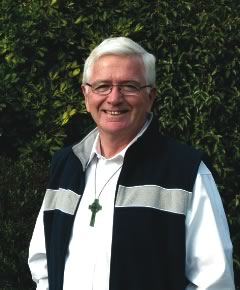Democracy, Elections and the Faith
The 2011 NZ election is fading from memory but its fallout will be quite profound for the country. Democracy can be messy, and results unexpected. Winston Churchill once famously said “Democracy is the worst possible system, except for all the others.” MMP is simply one way of counting the votes, but produces a profoundly different result from other methods. There are eight political parties in the new NZ parliament.
The Catholic Church has given its blessing to democracy in that it is in accord with the basic principles of Catholic Social Justice, most basic of which is the Common Good, carefully defined, and the dignity of individual citizens. As Gaudium et Spes teaches “the choice of a political regime and the appointment of rulers is left to the free choice of the citizens”.
Before the election the NZCBC issued a statement to their people encouraging them to vote, and to consider the Common Good and other basic principles. It is quite proper that they should have done this, and their statement cannot be interpreted as telling people for whom to vote. There have been occasions in parliamentary democracy in Australia and NZ where Catholic prelates have got involved in the political process. but each time it has left a bitter legacy against the church. The Archbishop of Melbourne Daniel Mannix supported a split in the Australian Labour Party in the 1950s, and Auckland’s Bishop James Liston was put on trial for sedition after political comments. He was acquitted.
The Catholic Church has
given its blessing to democracy in that it is in
accord with the basic principles of Catholic Social Justice
Catholics have the right of all citizens to use their vote as they wish, and decide which issues of the day are paramount. They should be able also to get guidance from the Church on the level of principle, and how to apply gospel values in their vote.
Separation of Church and State is an essential pre-condition for Western style democracies. But it is not total separation, as desired by the secularists. Church members vote and hold high office as citizens. The Churches have a part to play in the ‘public square’. In fact Evangelical Catholics are committed to robust public proclamation of Catholic teaching to the world.
The way the church’s influence plays out varies in different traditions. There is a subtle difference between NZ and Australia, reflecting their differing histories. But there is a dramatic difference between both countries and the USA. The Catholic influence in the Democratic party is a thing of the past, and the recent Republican President Bush managed to claim over 50% of the Catholic vote, but could not deliver on his pro-life agenda.
Conservative Catholics have joined hands with Protestant Evangelicals in political lobbying. One result is an Ecumenical Conservative Think Tank (Ethics and Public Policy Center) based in Washington DC dedicated among other things to repealing President Obama’s healthcare legislation, and overturning his presidency. In my view this type of advocacy would not be tolerated in Australia or New Zealand, being seen as crossing the line of church and state.
In matters of ethics and morality church and the state are likely to go head to head in the ‘public square’. However these issues rarely coincide with party lines, so the resulting ‘conscience vote’ is properly open to influence from Church based pressure groups.

 Entries(RSS)
Entries(RSS)